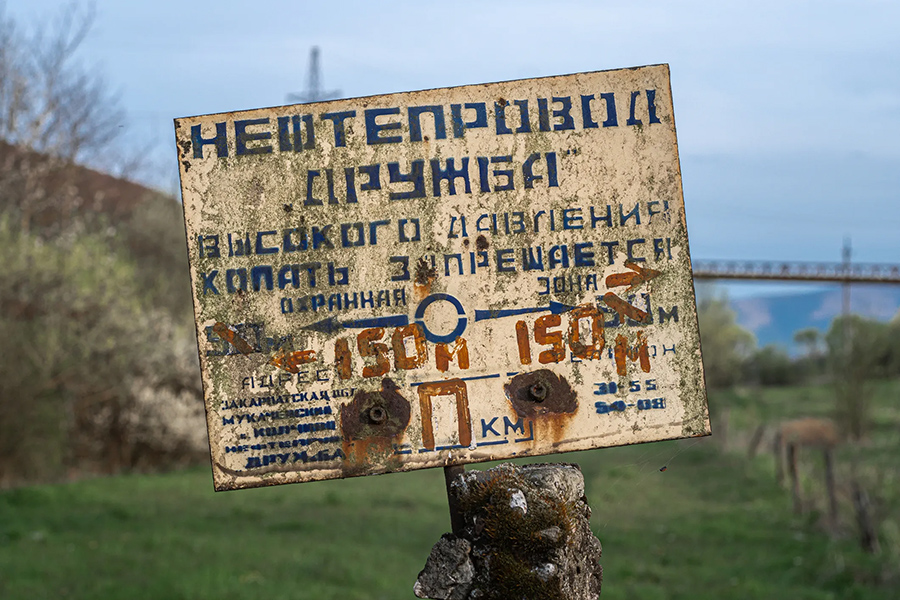Relations between Ukraine and Hungary have soured once again after Robert Brovdi, the Ukrainian drone commander of Hungarian descent, struck the Druzhba pipeline several times this month. The latest attack on the Unecha pumping station on the pipeline in Russia’s Bryansk region choked off Russian oil supplies to Hungary for several days, until it was repaired this week. Budapest fears that the taps could be turned off again: in response, Hungary accused Ukraine of trying to drag it into the war, banned Brovdi from entering the country and threatened to cut vital electricity exports to Ukraine if the pipeline is hit once more. Kyiv’s reaction, it seems, is: ‘We will do it again.’
Volodymyr Zelensky confirmed the strikes publicly last weekend. Facing journalists in Kyiv on Ukraine’s Independence Day, he slipped back into his comedian’s skin, smiling as he quipped: ‘We have always supported “friendship” between Ukraine and Hungary. Now the existence of “Friendship” depends on Hungary.’ The pun was deliberate. Druzhba – Ukrainian for ‘friendship’ – is one of the world’s longest oil pipeline systems, launched in 1964 to pump Russian black gold into Europe. Two years ago, most EU states halted Russian oil imports due to sanctions. Today only two member states still pay for Russian crude via Druzhba: Hungary and Slovakia. Moscow continues to earn around $6 billion a year from the pipeline’s transit across Ukraine.
It was only a matter of time before Ukraine targeted Druzhba as part of its broader campaign against the Russian oil revenues that continue to bankroll its war. For a while, Kyiv held back, wary of further damaging relations with Hungary, but by now, there was little left to damage. Ukraine’s argument is that Budapest has had more than enough time to break its dependence on Russian crude, as other European states have done. Instead, Hungary only deepened its ties with Moscow while throwing obstacles in Ukraine’s way.
Hungary faces a choice: scale back its hostility towards Ukraine or risk losing access to Russian oil
Hungary is the only EU member to have obstructed military aid for Kyiv and resisted sanctions against Russia since February 2022. Prime Minister Viktor Orban remains the sole European leader still vetoing the opening of the first cluster of EU accession talks with Ukraine. This week, Budapest and its Kremlin-friendly government sued the EU over using frozen Russian assets to aid Ukraine.
Hungary faces a choice: scale back its hostility towards Ukraine or risk losing access to Russian oil. Orban, whose campaign for next year’s elections is built on stoking anti-Ukrainian sentiment, has opted for the latter, dismissing Zelensky’s remarks about Druzhba as ‘blackmail and threats’ and warning of ‘long-term consequences’. He claimed Zelensky had effectively admitted Kyiv was striking the pipeline because Hungary opposed Ukraine’s EU accession bid. It was proof, Orban argued, that Hungarians had been right all along.
Peter Szijjarto, Hungary’s foreign minister, threatened to cut the 30 to 40 per cent of Ukraine’s electricity imports that come from Hungary. He accused Kyiv of pursuing an ‘openly anti-Hungarian policy’ and of wanting ‘Brussels and its Hungarian proxies’ to put pressure on Budapest. On the day Russia launched its second-largest airstrike on Kyiv, killing 23 people yesterday, Szijjarto offered no condolences, just condemnation of Ukraine’s attacks on Druzhba. He then barred Brovdi, the architect of the strikes, from entering Hungary.
In response, Kyiv summoned the Hungarian envoy to protest the entry ban, while Andrii Sybiha, Ukraine’s foreign minister, accused Szijjarto of ‘moral decay’, saying the Russian pipeline was more important to him than the Ukrainian children killed by Moscow. ‘Hungary is on the wrong side of history,’ Sybiha said.
Brovdi, better known by his call sign Magyar, didn’t stay silent either. He vowed to return to his father’s homeland once ‘the true Magyars, of whom there are more than enough’ grow tired of Orban’s government. By defending the Druzhba pipeline, he said, Hungary makes itself ‘complicit in the blood money that returns in the form of rockets and Shaheds striking peaceful Ukrainian cities’. ‘Your hands are drenched in Ukrainian blood. And we will remember that,’ Magyar warned.







Comments